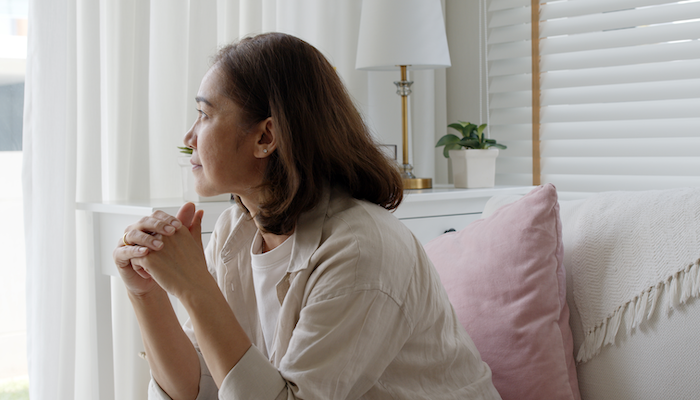While caring for an older loved one, perhaps you’ve been surprised to feel waves of sadness, a tightness in your chest, or sudden tears. You are grieving. It’s your heart’s way of beginning to let go, even while your beloved is still here. And no, you’re not jumping the gun. It’s a common phenomenon called anticipatory grief.
On the outside, you’re showing up every day, managing medications, making meals. But inside, you’re mourning the slow changes unfolding over time. Maybe your dad needs help with things he taught you how to do. Maybe it’s an inside joke your aunt’s forgotten. Future plans quietly disappear from the calendar. This type of grief is real. It’s valid. And it’s normal.
Experiencing anticipatory grief may feel confusing because nothing final has happened. Yet you may feel a deep, aching loss. Experts call it emotional rehearsal. Your heart is practicing finality. You might feel sadness, anxiety, guilt, or even moments of peace—sometimes all in the same day.
One of the most helpful tools for working through these emotions is talking about them. It might not seem like much, but sharing what you’re going through—aloud, in a journal, or with someone you trust—can bring relief. In fact, a study from the National Institutes of Health found that caregivers who talked about their experiences began to feel less bound to their role. They reconnected with who else they were—daughter, son, spouse, niece, friend. That shift made space for both grieving and loving.
Here are other ways to care for yourself during this time:
- Take short breaks. Breathing exercises or five minutes outside can clear your mind.
- Stay connected. Talk with someone who understands, or join a support group.
- Get rest when you can. Grief is exhausting. Let go of the to-do list sometimes.
- Drop the idea of “perfect.” You’re doing the best you can in a difficult situation.
- Create small joys. Music, photos, or a warm pet on your lap can lift your spirits.
This kind of grief may feel lonely. But you’re not alone—and such grief isn’t “wrong.” Taking care of yourself doesn’t mean stepping back. It means showing up with compassion and noticing the opportunities still available to both of you. Grief doesn’t start at the end. Sometimes it begins with love that chooses to stay present—even when goodbye is already on the horizon.
Overwhelmed with the emotions of caregiving?
Anticipatory grief might be just one of many feelings you experience while caring for a loved one. As the San Francisco experts in family caregiving, we at Compassionate Community Care know that this time of life can be very challenging. We can partner with you in caring, taking tasks off your plate so you can enjoy the time you have together. Give us a call at (415) 921-5038 to learn more.

